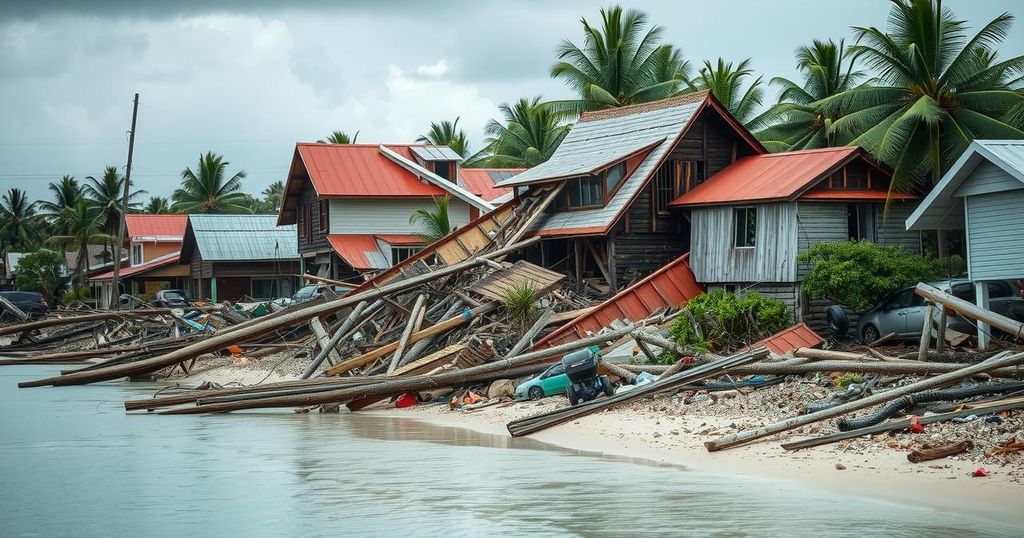Catastrophic Impact of Cyclone Chido on Mayotte: A Tragic Toll and Extensive Damage
Cyclone Chido has caused significant devastation in Mayotte, resulting in at least 11 fatalities and numerous injuries, with extensive property damage reported. The cyclone, which recorded wind speeds over 220 kph, is the worst to hit the island in nearly a century. It has now moved on to Mozambique, heightening concerns for millions in its path.
Cyclone Chido has wreaked havoc in Mayotte, a French territorial island in the Indian Ocean, resulting in the tragic deaths of at least 11 individuals. The French Interior Ministry confirmed on Sunday that the evaluation of casualties is ongoing amid concerns that the numbers may rise as rescue operations continue. Reports indicate that nine victims are in critical condition and an additional 246 have sustained various injuries. The cyclone, with wind speeds exceeding 220 kilometers per hour, has left extensive destruction in its wake, particularly impacting local infrastructure and housing.
The prefect of Mayotte reported that this cyclone has been the most severe event experienced in the territory over the past nine decades. Cyclone Chido made landfall on Saturday, directly affecting Mayotte while also impacting neighboring regions such as the Comoros and Madagascar. In some areas, residents described entire neighborhoods as being demolished, with many homes losing rooftops and other structures collapsing. Furthermore, significant damage was reported at the main airport, complicating emergency response efforts.
Following its devastating impact in Mayotte, Cyclone Chido has moved towards the African mainland, making landfall in Mozambique where humanitarian officials have issued warnings that an estimated 2.5 million individuals could be adversely affected. Preparations are underway in landlocked nations such as Malawi and Zimbabwe, where authorities anticipate possible evacuations due to flooding threats. The recent trend of powerful cyclones in this region, including Cyclone Idai in 2019, which resulted in more than 1,500 fatalities, raises alarm about the increasing severity of such weather events.
In Mayotte, which is often recognized as France’s economically disadvantaged region, the effects of Cyclone Chido will likely exacerbate existing socioeconomic challenges, underscoring the need for improved infrastructure and disaster preparedness in the face of climate-related catastrophes.
Cyclones are tropical storms characterized by strong winds and heavy rain, often leading to significant destruction upon landfall. The Indian Ocean region has been particularly vulnerable to such extreme weather events, which have increased in intensity due to climate change. Mayotte, an island known for its economic difficulties, faces frequent disasters that hinder recovery efforts, highlighting the critical need for robust infrastructure and emergency response systems. Historical events, such as Cyclone Idai in 2019, serve as sobering reminders of the impact of cyclones in this region.
In summary, Cyclone Chido’s impact on Mayotte has been catastrophic, resulting in loss of life and widespread damage to infrastructure. As emergency services continue to assess the situation, there is apprehension that the casualty figures may increase. The cyclone’s progression to Mozambique poses further risks to millions, emphasizing the urgent requirement for regional preparedness against such natural disasters and the long-term strategies needed to address the vulnerability of these communities.
Original Source: www.business-standard.com




Post Comment